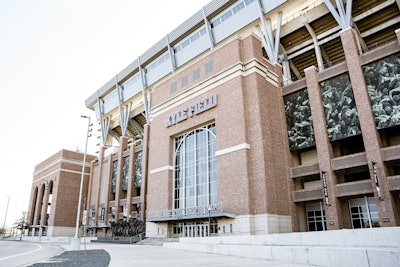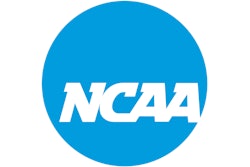
A Brazos County state district judge has cleared the way for a long-delayed trial showdown between donors to Texas A&M University and its affiliate 12th Man Foundation, stemming from a decade-old dispute over seating and parking rights at Kyle Field, home of Aggies football.
As reported by the Houston Chronicle, State District Judge George Jerrell Wise signed an order last week denying a summary judgment motion by the foundation, which raises money for the A&M athletic department. The motion sought to dismiss a lawsuit filed by individuals from 16 families who entered agreements with the foundation’s Permanently Endowed Scholarship Program during the 1970s, 1980s and early 1990s.
The lawsuit, which begins by stating the A&M Honor Code that “An Aggie does not lie, cheat or steal, or tolerate those who do,” says the 12th Man Foundation engaged in breach of contract and violated “The Rule of Aggie Culture” in its treatment of the endowed donors, who collectively donated more than $400,000 to the foundation during a time that the A&M athletic department was struggling financially, David Barron reported for the Chronicle.
Per Barron's reporting:
- Under the endowment agreements reached in the last century, endowed donors were promised “best available” parking and seating locations with tickets for home and away games and the option to upgrade their seat and parking spots at no additional cost, according to the lawsuit.
- The foundation in 2007 began using a new system of fundraising designed to attract new donors and, in the process, eroded the rights of established donors, the lawsuit adds. That process culminated in 2015 with the “reseating” plan for the $450 million renovation of Kyle Field and a declaration that the donors’ seats no longer existed, meaning they would be required to make additional contributions to retain their prime seat locations.
- The donors claim that foundation trustees were aware of their “lifetime seat locations” and the right to improve the locations at no cost.
“While some businesses might try to get away with repudiating oral promises in the business world, the foundation’s failures are a fundamental departure from the very foundation of Aggie culture,” the lawsuit states.
"The donors, three of whom have died since the lawsuit was filed in 2017, allege they were promised lifetime or 30-year benefits for A&M games at Kyle Field in return for their donations, which ranged from $20,000 to $50,000 each," Barron wrote for the Chronicle. "They claim those benefits were significantly diminished when A&M reconfigured the stadium after joining the Southeastern Conference in 2012, and they estimate they lost seating rights now valued at $4.6 million."
The case dates to 2011. At its core “is a shameful example of how big-time college sports, notably football, has caused (athletic booster organizations) like the one in this case to frankly abuse their older alumni who had been avid supporters for decades, selling their positions with the schools and their seating arrangements out to new ‘mega-donors,’ " said Brent Coon, lead counsel for the donor group.
“Now that we have prevailed on the dismissal efforts and survived the prior appeals on legal issues as well, we are well-positioned to take depositions of all the decision-makers within the foundation and also find out who bought our clients’ seat locations out from under them and how much they are paying for them.”
According to Barron, the lawsuit originally was filed in Newton County and has "drifted through lower court rulings and appeals before being transferred to Brazos County," where Texas A&M is located.
"It lists 36 individuals from 23 cities, all but two in Texas, who say their endowment rights were violated," Barron wrote. "They account for 60 seats at Kyle Field, which now seats 102,733, and 18 parking spaces, and their number includes three former presidents of local A&M clubs and the family of a fourth former A&M club president and foundation board member, said attorney Scott McQuarrie, who represents the plaintiffs with attorneys Coon, Eric Newell and Blair Bisbey."
“All are credible, unselfish Aggie leaders who devoted much of their personal lives voluntarily serving TAMU, true to the institution’s values,” McQuarrie said in an email, as reported by Barron for the Chronicle. “… They, their families, and the other endowed donor plaintiffs believe the foundation must admit its mistakes and return to practices that reflect an uncompromising commitment to integrity.”





































